Secret cameras and 14-hour days: What Netflix doesn’t tell you about the Dallas Cowboys Cheerleaders
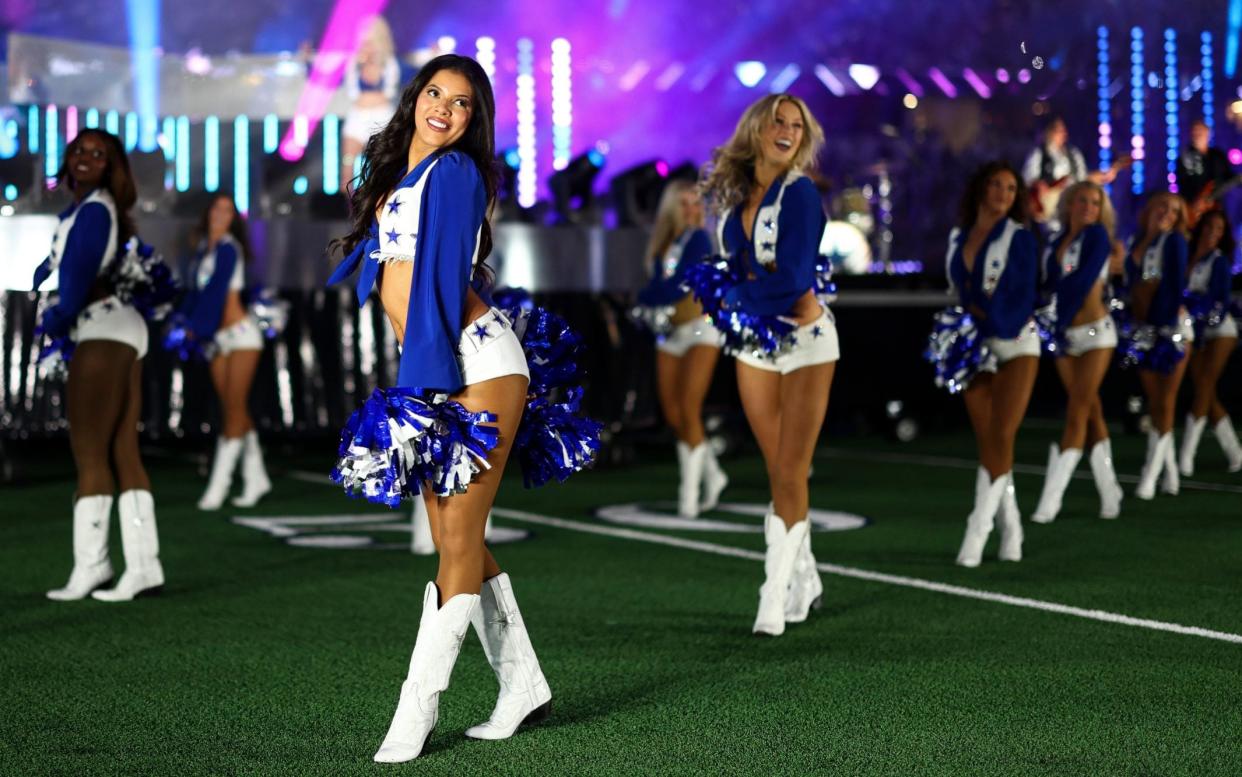
- Oops!Something went wrong.Please try again later.
- Oops!Something went wrong.Please try again later.
Being a Dallas Cowboys Cheerleader has become a byword for American excellence: the paradigm of beauty and class (or, as their official motto puts it, “often imitated, never equalled” talent). Since their inception in 1961, the DCC – with their quintessentially Texan bouncy curls, white cowboy boots and sparkling smiles – have long captured the imagination of the American public.
Between 2006 and 2021, they were the subject of Country Music Television’s (CMT) most popular reality show, Making the Team, which charted the journey from auditions (600 girls compete for 36 final spaces) to game days; dancers have been immortalised as special Barbie dolls and their uniform featured in Washington D.C.’s Smithsonian Museum; and the team have performed with the starry likes of Queen, Luke Combs and Dolly Parton.
The Dallas Cowboys organisation itself – owned by Jerry Jones – is the world’s most profitable sports team, valued at $9 billion dollars. The cheerleaders’ perfect image is almost as important as that of their footballers. If anything, they’re held to a higher standard: those talented enough to make the final 36 must sign contracts agreeing to not “fraternise” with the players, undergo physical transformations (from weight loss to hair makeovers) and commit to a strictly-monitored social media presence.
But this darker side of NFL cheerleading barely registers in Netflix’s shiny new seven-part reality series, America’s Sweethearts: Dallas Cowboys Cheerleaders. Directed by Emmy award-winning film-maker Greg Whiteley (Cheer), the series follows the 2023-24 hopefuls and eventual team as they progress through auditions, training camp and the football season.
We’re invited into the girls’ shiny, glitter-strewn locker room, shown footage of them shaking pom poms, learning their iconic high kick dance moves and piously attending church services – with less attention given to recent lawsuits over poor pay or in-house voyeurism; allegations of misogyny and racism in the recruitment process; political censorship and infantilisation; or the girls’ own personal struggles and insecurities in an institution that prioritises beauty over everything else.
The DCC (and NFL cheerleading in general) have long been plagued by reports of the above. Old episodes of Making the Team often centred on private meetings between the dancers and staff – mostly consisting of director Kelli Finglass and choreographer Judy Trammell – where the latter two would pick apart technique, weight gain, sloppy hair or appearance. Former DCC Victoria, who has a prominent presence in the Netflix show and whose mother is a close personal friend of Finglass and Trammell, was shown on Making the Team being called out on her rising weight.
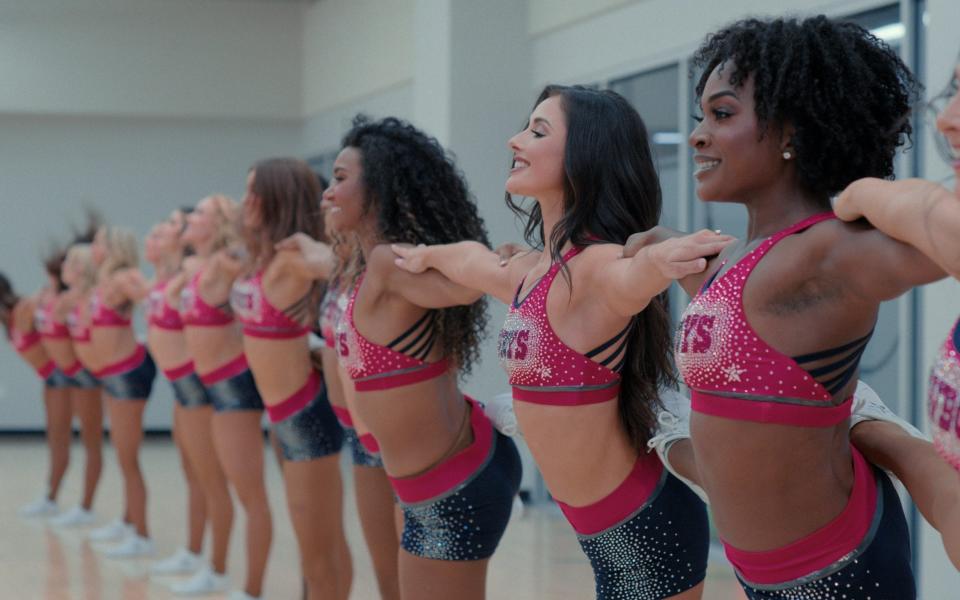
Then 18-years-old, Victoria was told that, during auditions, judges wanted her to “tone up her tummy” to better her chances of becoming one of “America’s Sweethearts”. In the new series, she speaks candidly about how the organisation has been a huge part of her life since childhood – and how much it has wrecked her self-esteem, damaged her relationship with food and led to insecurities about being an outsider, or not popular enough to be a future leader, in the close-knit group of girls.
One former DCC “Rookie” (a dancer who made it to training camp) says that senior members of staff regularly told her she was too heavy to be on the squad, despite the fact that she was a US size 2 (UK size 6) at the time.

“I remember walking into training after a full shift at work, in a hospital, and one of the older dancers telling me I should put more makeup on because Kelli would be mad if not,” the Chicago-based dancer tells me [all the dancers spoken to for this article asked not to be named or their rookie years included, so they were not at risk of legal action by the Cowboys]. “I would be doing 12-14 hour days most days, trying to make the team, and I basically wasn’t eating because I was so scared of getting fat – I’d get home and watch old episodes of Barefoot Contessa [Ina Garten’s hit cookery show] on the Food Network while nibbling on rice cakes, to trick me into feeling full.”
Two years ago, the Cowboys were forced to settle a multi-million dollar settlement to four past cheerleaders following allegations that Richard Dalrymple, the Cowboys’ senior vice president of public relations and communications, filmed them in their changing rooms at AT&T stadium. Dalrymple denied the allegations, while the Cowboys said they found no proof of any wrongdoing on his part; in a later statement, owner Jones said the settlement showed the Cowboys took such allegations seriously.
An episode from the new Netflix series features a cheerleader being led away from the sideline of the stadium to make a police report after being groped by a camera man; another describes the team’s guidelines for photographs with members of the public, with men handed a football to grip in front of them so they’re not tempted to grab the cheerleaders’ waists.
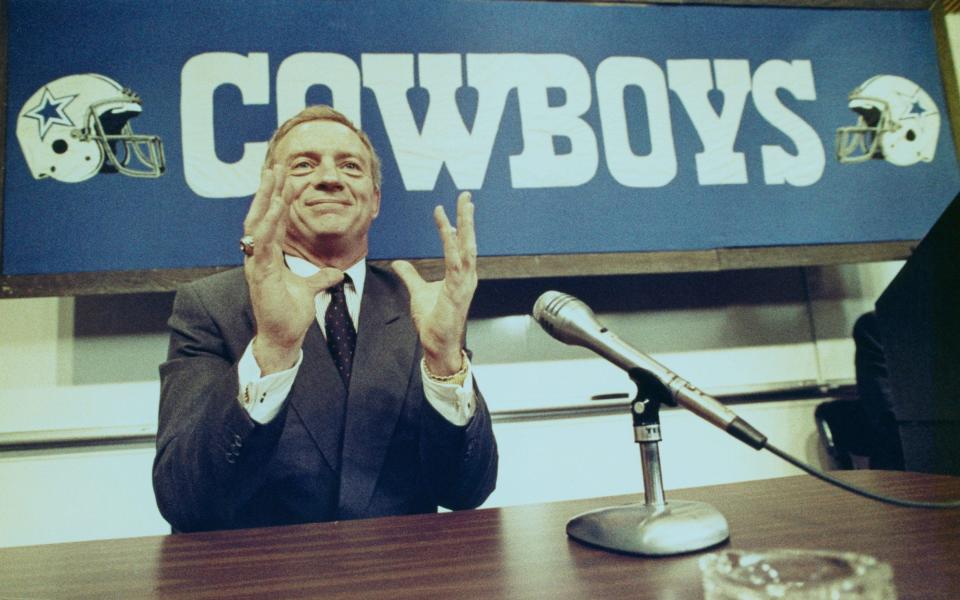
In a statement to HuffPost about the pitchside groping incident, Cowboys representatives said: “Safety and security are always a core imperative for us with the Cheerleaders. In this specific situation, on-site Arlington Police Department officers were immediately engaged. A thorough review of the incident was initiated quickly. Any contact was determined to be unintentional and no charges were deemed to be appropriate by APD.”
The organisation has also been criticised for its lack of diversity – in this year’s squad, just six dancers are black. A black woman who applied in 2014 after dancing for another leading sports team says she was told not to wear her natural hair or a plaited style for auditions, but to straighten it so she “looked more feminine”. Years of classical training in jazz and contemporary styles were ignored by fellow dancers who asked if her background involved “street or hip-hop,” she says.
Unrealistic beauty standards and racism aren’t the only controversies that have plagued the Cowboys (and NFL cheerleading in general) in recent years. In 2014, the NFL was rocked by its first class-action lawsuit when the former Oakland Raiders dancer Lacy Thibodeaux-Fields accused her organisation of wage theft and gender discrimination; she was paid only $1,250 for an entire season, with rehearsals and ambassadorial events remaining unpaid.
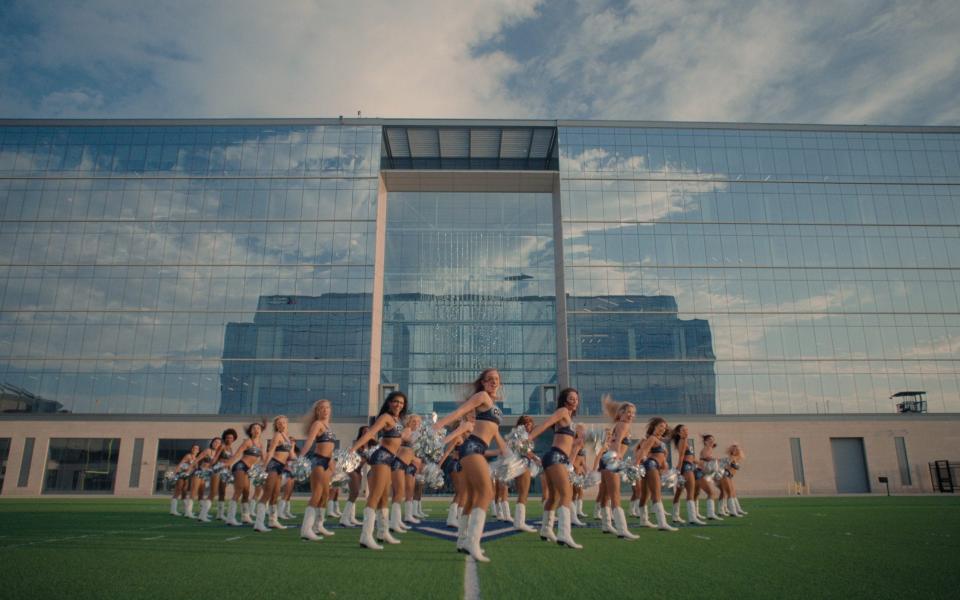
Four years later, Erica Wilkins – who danced with the DCC for three years, including as part of its prestigious 12-person “show group”, and appeared solo on the team’s swimsuit calendar – sued the Cowboys for lost wages, alleging that she was paid just $4,700 after taxes (they get paid $8 per hour for practices, only a whisper above Texas minimum wage). It’s a figure made even more staggering when compared to the reported earnings of the Dallas Cowboys mascot, Rowdy, at $65,000 a year plus commission.
The cheerleaders are expected to train most evenings, work around their actual jobs, and be available to perform across public holidays and weekends – and that’s before you factor in the thousands of dollars spent on a lifetime of dance training or outfits and accommodation for auditions. Speaking to the New York Post at the time of the lawsuit, Wilkins said: “Yes, it is prestigious. But at the end of the day, prestigious doesn’t pay my rent. I can’t walk down to my leasing office and hand them my uniform for the month.” In the new series, ex-cheerleader Katherine Puryear says a dancer on the team makes a wage comparable to that of a substitute teacher or Chick-fil-A worker; meaning those without family wealth or support rely on other employment to survive.
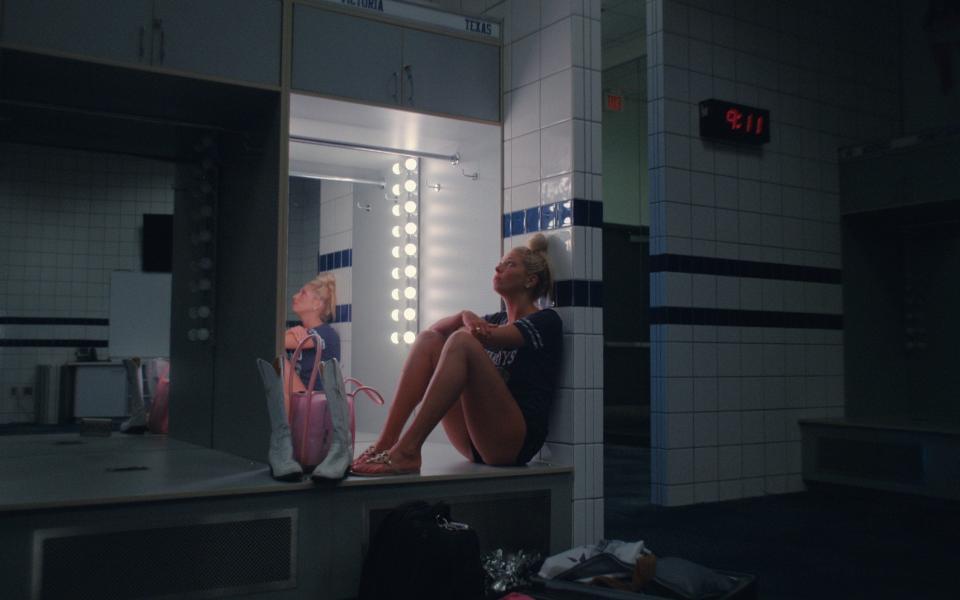
The restrictions aren’t solely financial, either, with women on the squad undergoing strict media training and social media regulation. When Roe v Wade was repealed two years ago, the DCC were criticised for not putting out a public statement deploring its impact on women and girls in Texas. Elsewhere, during the pandemic, one of the squad’s most talented dancers, Hannah Anderson, decided to quit over the organisation’s purported lack of safety protocols. Writing on Instagram, she said: “The decisions made prioritised reality TV over the health and wellbeing of the organisation’s individuals, capitalising on the dreams of 50 women in order to create content and ratings in the midst of a pandemic.
Having now invited Netflix’s cameras into their hallowed halls, the DCC seems to still be prioritising making great television rather than protecting their “sisterhood”. Remembering how little the dancers get paid, and how strictly their professional and personal lives are regulated by the organisation, makes it an even more bitter pill to swallow, and begs the question: how much of Netflix’s cash injection is actually going into their bank accounts?
America’s Sweethearts: Dallas Cowboys Cheerleaders is on Netflix now

